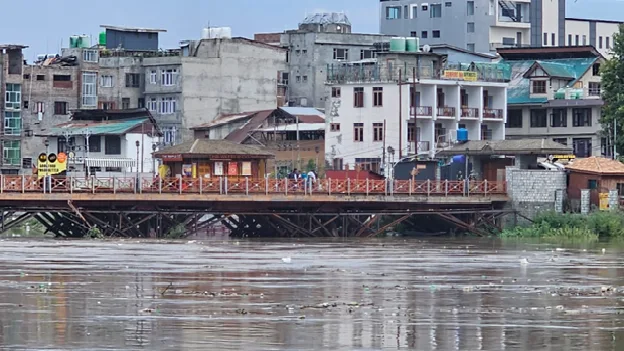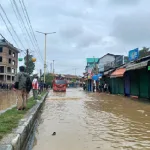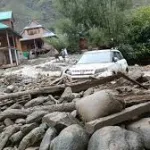Srinagar, Aug 27: Throughout the day on Wednesday, people along the banks of the River Jhelum witnessed a disturbing sight: a continuous flow of garbage floating downstream. Plastic bottles, food wrappers, household waste, and broken furniture moved with the current, turning the valley’s lifeline into a moving dump.“It was heartbreaking to watch,” said Abdul Rashid, a shopkeeper from Rajbagh. “For hours, the river carried trash instead of clean water. It felt like the Jhelum was suffocating. This is nature slapping us back for what we have done.”By afternoon, small crowds had gathered on bridges and embankments to watch. Some took photos and videos, others expressed anger and helplessness. “The Jhelum has always been our pride,” said Nusrat Jan, a school teacher from Srinagar. “My grandmother told me stories of its clear waters, where children would play. Now, throughout the day, it carried plastic and filth. This shows how far we have fallen.”Experts say the incident reflects a long-running crisis. “This is not a one-off,” said Bashir Ahmad Guroo, an environmentalist. “Our drains empty into the river, untreated sewage flows daily, and solid waste management is almost absent. What residents saw today is the accumulated result of years of neglect.”The Jhelum, often described as Kashmir’s lifeblood, supports irrigation, drinking water, and fisheries. But unchecked pollution and encroachments have steadily degraded its ecosystem.“People here still think climate change is a distant problem, but it is visible in our rivers, our weather, our agriculture,” Guroo added. “When the Jhelum is treated like a dumping ground throughout the day, it signals a complete breakdown in our relationship with nature.”Environmental activists warned that the cost of such disregard will be steep. “If the Jhelum continues like this, it risks turning into a dead river within a decade.” “Floods, droughts, diseases, these are not accidents. They are nature’s way of warning us. What happened today is a message.”For residents, the frustration was directed not just at people littering but also at authorities. “We don’t even have proper bins or waste collection,” said Mushtaq Dar, a rickshaw puller from Habba Kadal. “Where will people throw their trash? The government always comes after a disaster, never before. Today’s river was a disaster unfolding in real time.”By evening, as the flow of waste thinned out, the Jhelum appeared calmer, but the image of trash-filled waters stayed with those who saw it. The river that once symbolised beauty now seemed like a reminder that neglect has consequences.For many, the sight throughout the day was less about pollution alone and more about survival. The Jhelum, they said, is speaking back, and it is time to listen.






